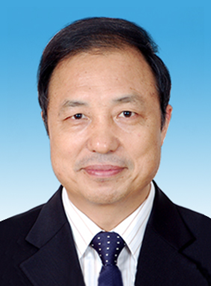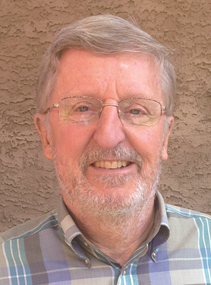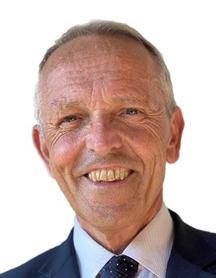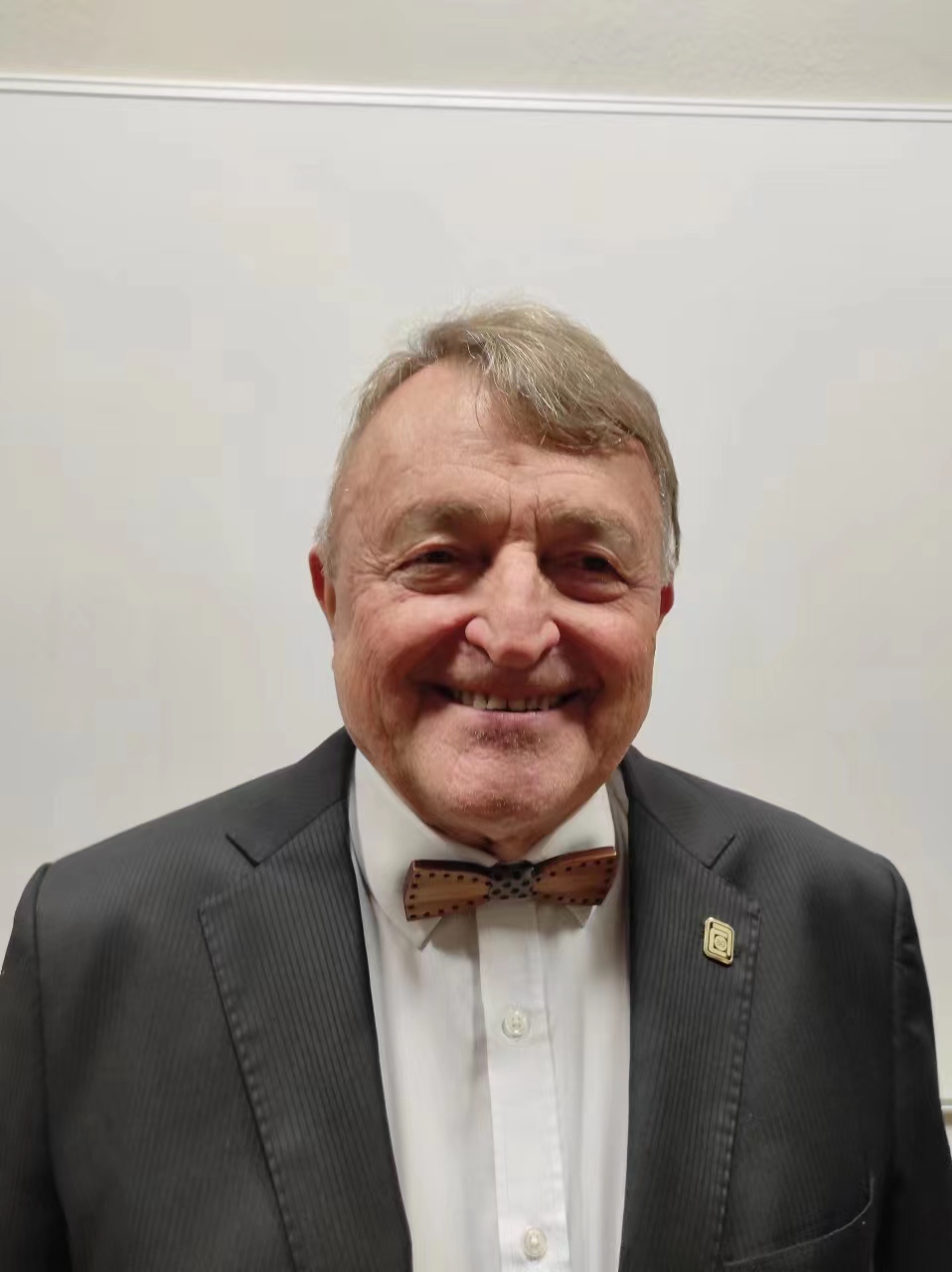ISDE International Lectures, organized by the International Society for Digital Earth (ISDE) and supported by the International Research Center of Big Data for Sustainable Development Goals (CBAS) will be initiated on November 18th, 2022.
The ISDE International Lectures are a series of online events which feature invited lectures by well-known international experts in the field of Digital Earth. The event will invite speakers to give lectures every two months. The purpose of the events is to bring international scholars in the relevant research fields of Digital Earth together to exchange academic perspectives, share research results, and disseminate the most cutting-edge and authoritative concept of Digital Earth.
The 1st ISDE International Lectures on "Digital Earth: Past, Present and Future Perspectives" was given on November 18th 2022, 15:30-17:00 (UTC+8), 8:30-10:00 (CET), inviting the Editors-in-Chief of Manual of Digital Earth to give talks online.
Invited Speakers:
Prof. Huadong Guo (Director General, International Research Center of Big Data for Sustainable Development Goals)
Speech Topic: Digital Earth in Facilitating of SDGs
Prof. Michael F. Goodchild (Emeritus Professor, Geography at the University of California, Santa Barbara, USA)
Speech Topic: Digital Earth as a Digital Twin
Dr. Alessandro Annoni (President, International Society for Digital Earth)
Speech Topic: The Impact of Digital Transformation on Digital Earth
Moderator:
Prof. Milan Konečný (Masaryk University, The Czech Republic)
Programme:
15:30-15:33 | Welcoming Remarks Dr. Alessandro Annoni (President, International Society for Digital Earth) |
15:33-15:35 | Introduction Moderator: Prof. Milan Konečný (Masaryk University, The Czech Republic) |
15:35-15:55 | Topic: Digital Earth in Facilitating of SDGs Speaker: Prof. Huadong Guo (Director General, International Research Center of Big Data for Sustainable Development Goals) |
15:55-16:15 | Topic: Digital Earth as a Digital Twin Speaker: Prof. Michael F. Goodchild (Emeritus Professor, Geography at the University of California, Santa Barbara, USA) |
16:15-16:35 | Topic: The Impact of Digital Transformation on Digital Earth Speaker: Dr. Alessandro Annoni (President, International Society for Digital Earth) |
16:35 | Group Photo |
16:35-16:55 | Q&A |
16:55-17:00 | Announcement of the 2nd ISDE International Lectures |
Short Bio of Invited Speakers:

Huadong Guo
Huadong Guo is the Director General of the International Research Center of Big Data for Sustainable Development Goals (CBAS), a Professor of the Chinese Academy of Sciences (CAS) Aerospace Information Research Institute, an Academician of CAS, a Fellow of TWAS, a Foreign Member of the Russian Academy of Sciences, and a Foreign Member of the Finnish Society of Sciences and Letters. He is presently serving as Honorary President of the International Society for Digital Earth (ISDE), Director of the International Center on Space Technologies for Natural and Cultural Heritage under the Auspices of UNESCO, a Member of the Integrated Research on Disaster Risk (IRDR) Program co-sponsored by ISC and UNDRR, Chair of the Digital Belt and Road Program (DBAR), and Editor-in-Chief of two scientific journals, International Journal of Digital Earth and Big Earth Data. He also served as a Member of the UN 10-Member Group to Support the Technology Facilitation Mechanism for SDGs appointed by the UN Secretary-General (2018-2021), Chairman of the International Committee on Remote Sensing of Environment (2017-2020), President of ISDE (2015-2019), and President of the ICSU Committee on Data for Science and Technology (CODATA) (2010-2014). He has over forty years of experiences in remote sensing, specializing in radar for Earth observation, Digital Earth, and Big Earth Data. Guo has made numerous contributions to scientific literature including more than 530 papers and 24 books. He is the recipient of 19 domestic and international prizes.

Michael F. Goodchild
Michael F. Goodchild is Emeritus Professor of Geography at the University of California, Santa Barbara. He is also Distinguished Chair Professor at the Hong Kong Polytechnic University and Research Professor at Arizona State University, and holds many other affiliate, adjunct, and honorary positions at universities around the world. Until his retirement in June 2012 he was Jack and Laura Dangermond Professor of Geography, and Director of UCSB’s Center for Spatial Studies. He received his BA degree from Cambridge University in Physics in 1965 and his PhD in geography from McMaster University in 1969, and has received five honorary doctorates. He was elected member of the National Academy of Sciences and Foreign Member of the Royal Society of Canada in 2002, member of the American Academy of Arts and Sciences in 2006, and Foreign Member of the Royal Society and Corresponding Fellow of the British Academy in 2010; and in 2007 he received the Prix Vautrin Lud. He was editor of Geographical Analysis between 1987 and 1990 and editor of the Methods, Models, and Geographic Information Sciences section of the Annals of the Association of American Geographers from 2000 to 2006. He serves on the editorial boards of ten other journals and book series, and has published over 15 books and 500 articles. He was Chair of the National Research Council’s Mapping Science Committee from 1997 to 1999, and of the Advisory Committee on Social, Behavioral, and Economic Sciences of the National Science Foundation from 2008 to 2010. His research interests center on geographic information science, spatial analysis, and uncertainty in geographic data.

Alessandro Annoni
Alessandro Annoni is the President of the International Society for Digital Earth (ISDE). He has worked in the European Commission's Joint Research Centre since 1997 as Head of the “Spatial Data Infrastructure” and “Digital Earth” Units. Under his leadership, these units carried out research on information infrastructures, including multidisciplinary interoperability, and supported the design and technical coordination of the INSPIRE Directive which sets out the rules for the creation of the European Spatial Data Infrastructure. From 2016 until his retirement in 2020 he was Head of the Digital Economy Unit. The Unit addressed the techno-socio-economic aspects related to the Digital Economy, providing guidance to accelerate the transition to a data-driven economy in Europe and understand the issues and challenges of a more connected world (IoT). The Unit was also responsible for the European Artificial Intelligence Observatory (AI Watch). Alessandro graduated in Physics from the University of Milan and before joining the JRC, he worked for several years in the private sector as manager of companies specialized in Remote Sensing, Geomatics, Software and Information Systems development. Alessandro has about 40 years working experience in environmental applications and information technologies and more recently on digital economy and digital transformation. In 2006 he served as co-chair of the Architecture and Data Committee of the Group on Earth Observations (GEO) and successively as co-chair of GEO Infrastructure Implementation Board. Alessandro has been awarded the 2013 Ian McHarg Medal of the European Geosciences Union reserved for distinguished research in “Information Technology applied to Earth and Space Sciences”. In 2016 he received the Digital Earth Science and Technology Contribution Award from the International Society for Digital Earth for outstanding contribution to advancing the development of Digital Earth. In 2020 he was awarded the Lifetime Achievement Award at the Geospatial World Awards 2020.
Short Bio of Moderator:

Milan Konečný
Milan Konečný is a professor at Masaryk University, the Czech Republic. He is one of the Founding Members of International Society for Digital Earth (ISDE), invited expert to the 1st International Symposium on Digital Earth in 1999, Chair of the Organizing Committee of the 3rd International Symposium on Digital Earth in Brno, Czech Republic, in 2003, former ISDE Vice President, ISDE Fellow and one of Chapter editors of the Manual of Digital Earth.
Extended Materials:
Manual of Digital Earth
On November 18th 2019, the first scientific book of Digital Earth, namely "Manual of Digital Earth" was formally launched by the International Society for Digital Earth (ISDE) and Springer.
The "Manual of Digital Earth" was co-edited by Prof. Huadong Guo, Prof. Mike Goodchild, and Dr. Alessandro Annoni. This book contains 26 chapters and was contributed by more than 100 authors from 18 countries worldwide. It mainly covers the current status and future directions for Digital Earth research, a systematic analysis of the theories, methods, and technical systems of Digital Earth, and a summary of the key achievements to date, and predicts the likely direction and probable future developments within the discipline.
This book can be seen as an important contribution from ISDE since the Digital Earth concept was raised in 1998. It also shows cases the capability of Digital Earth technologies in various areas, such as Sustainable Development Goals, climate change research, disaster mitigation, and so on.
"Digital Earth" is a global initiative to construct a comprehensive virtual representation of the planet. It is a collaborative effort between Earth sciences, space sciences and information sciences to monitor and forecast natural and human phenomena on our planet.
As of today, it is necessary for us to gain a profound understanding and make an in-depth analysis of the expanding scope of the concept of Digital Earth and the rapid advancements in digital technologies, as well as the impacts of Digital Earth on interdisciplinary science and social progress.
The "Manual of Digital Earth" has been downloaded nearly 1 million so far. It is an open access publication and can be accessed for free : https://link.springer.com/book/10.1007/978-981-32-9915-3

2006-2023 All Rights Reserved 京ICP备06045536号-1 京公网安备 11010802041631号